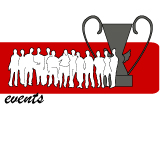
NOTICE OF COMPETITION
PREMIO ARCHIMEDE 2014, organized by studiogiochi, concerns the invention of unpublished board games. The Prize, dedicated to the great Alex Randolph, who was its President during the first seven editions, made the wishes of more than 30 authors come true thanks to the pubblication of their games.
Everybody can participate, there are no age nor nationality limits. Authors can participate either as a single person or as a group.
The Prize is supported by the patronage of the Comune di Venezia and the J.P. Halvah Foundation (founded by the very same Randolph and directed by Herbert Feuerstein who offers a support of €3.500 to the winners (to be spent within the 30 of April 2015), in form of scholarships, stages, contributions for the publication, etc. The final ceremony will take place in Venice on September 2014 (the exact day will be comunicated as soon as possible).
During this occasion there will be a commemoration of Alex Randolph and an exhibition of the finalist games. The official magazine for the competition is Settimana Logika.
The Prize is also supported by the cooperation of the Musée Suisse du Jeu (Swiss Museum of games) that will organize an exhibition of the winner games.
All the companies that participate to the event will receive informations about the games competing and will be able to take a look at them.
To participate, please fill in the participation form and send a prototype of the game within the 31th of May 2014 to:
PREMIO ARCHIMEDE 2014 c/o studiogiochi
S. Polo 3083
30125 VENEZIA
The authors are required to pay a participation fee of €25 to studiogiochi for each game, that must be sent with the prototype.
This fee is ment to support part of the organization costs. The eventual costum charges must be payed by authors otherwise the game might be disqualified. Studiogiochi will have the right of first refusal on the finalist games (see the participation form).
For the payment, please attach to the rules a nontransferable cheque to studiogiochi or else an international postal cheque. There will be a participation certificate for each admitted game, to witness and certify the presence of the game to this edition.
Besides the Archimede Prize, the jury will assign the Special Prize Sebastiano Izzo and many other Awards such as:
• Carta Mundi Special Prize for the best card game: the prize consists in 1.000 copies made by Carta Mundi for free given to its creator. The game must be composed by one or two decks of cards and will be produced with its rules and its box.
• Special Prize IDG for the best game entirely created by an author that never published one of his games. For the prototypes with more than one author, if one of them already published a game, they can’t be possible candidates.
All the finalists will receive many games offered by the publishers that sponsor the prize.
Requirements to participate
All the games will need the requirements below. Without these requirements they won’t be allowed to the final.
The game
- Has to be original and unpublished.
- Can’t last more than 90 minutes.
The rules
- Have to be in Italian and/or English and printed.
- Have to be easy to understand and exhaustive (including the indication of the contents of the material and the number of players). The jury must not have a hard time understanding them. It is advisable to use examples and figures.
- Can’t be written in more than 10.000 characters.
- Advice: Before you send the game, let it be played by the testers without giving any help explaining the rules, and observe how it works! That way you will know how to refine and perfection your rules and even your game.
The prototype
- Needs to be contained in a solid cardboard box similar to the games officially produced (gameboard included). The box has to be easy to open, but also well closed. It must be easy to carry, not too heavy and not bigger than approximately 40x30x10 cm.
- It has to be functional. For instance the pawns have to be able to stand easily, the spaces have to be enough big, thee cards must not be too thin, the colours have to be easy to identify, etc.
- the game should not depend on its language. If there is any text necessary it is adviced to use english so that the final jury is able to be indipendent.
- It is not necessary for the game to be presented as a final version, the graphic aspect comes after its use.
- The pieces of the game have to be wrapped separately in order to make it easy to get ready for the game.
- If necessary, the board has to be folded to fit into the box.
- The organization is not responsible for any loss or damage of the prototype during the event.
Information about the authors
On the box and on the rules there must be the name of the game, the name and surname of the authors, their full address, telephone number, and eventual e-mail address.
Participation form
The participation form has to be completely filled in and signed for each participating game.
Restitution of the prototypes
The authors may recollect their prototypes at the end of the final ceremony; all the non recollected prototypes won’t be returned.
The jury, the criteria and procedures for the selection of the games
There will be two separate juries, both directed by Niek Neuwahl.
During the first part of the competition only the selection jury is working:
• Niek Neuwahl (president)
• Leo Colovini (spokesman)
• Giuseppe Baggio
• Mauro Gaffo
• Andrea Ligabue
• Paolo Munini
• Francesco Nepitello
• Dario Zaccariotto
• Alessandro Zucchini
The selection jury will carefully study all game rules, dividing them among its members
• During the jury meetings each member explains to the others the rules he read. Each game will be played by at least 50% of the selection jury members. If during playing the game is judged as not appropriate its playing can be interrupted before the end of the game.
• Each jury member will evaluate the game according to the evaluation criteria. The average of the sum of all votes gives a position to each game that will determine what game will make it to the final.
• The first 30 games will all be played once more by all selection jury members, and among them the finalists will be selected.
The jury will consider the games accordingly to the following criteria (in order of importance):
- Originality of the game mechanisms.
- Playability, balance and functionality of the mechanisms.
- Amusement.
- Interaction between players.
- The possibility that the game will be taken into consideration from editors to be published.
- Theme coherence.
- Quality of the prototype.
At this point the final jury comes into play:
• Niek Neuwahl (president)
• Michael Bruinsma (Phalanx, Netherlands)
• Bernd & Moritz Brunnhofer (Hans im Glück, Germany)
• Silvio De Pecher (la tana dei Goblin, Italy)
• Dario De Toffoli (studiogiochi, Italy)
• Uwe Molter (Amigo, Germany)
• Philipp Sprick (Ravensburger, Germany)
• Dieter Strehl (Piatnik, Austria)
• Estelle Vareilles (Asmodee, France)
• Albrecht Werstein (Zoch, Germany)
The final jury will meet about one week before the final and each member will play every finalist game, secretly voting and writing down his impressions about his 7 favourite ones.During the final ceremony, there will be a voting in front of the public to decide the winner. Each jury member will give 7 points to his favourite game, 6 points to his second favourite, and so on.
The votes will then be imediately counted to determine the winner of the Edition.
The selection jury will also choose the 3 best card games, indifferently if they are or not among the finalists. These 3 games will be judged separately by the final jury + Luc Martens from Cartamundi. Each jury member will assign 3 points to its favourite card game, 2 points to the next game, and so on. The winner will recieve the Cartamundi Special Prize.
Both groups will be joined by Fabrizio Berger, Giulia Franceschini, Giorgia Marchesin, Elisa Marzorati and Rossana Nardo for consultancy.
Published Archimede Games
The Premio Archimede, has demonstrated throughout the years to be an outstanding showcase. Already 35 the published games that participated to the Prize.
• Who sleeps won't fish (2014) by D. Rigolone, ed. Piatnik (Expresso Fishing)
• Castles (2010) by Marco Pozzi, ed.Heidelberger Verlag.
• Aquileia (2010) by Pier Volontè, Zoch and 999 games.
• Crazy race (2010) by Antonio Scrittore, Zoch and 999 games (Kalimambo)
• Drop Site (2010), by Dennis Hoyle, Giorgion games.
• Quebec (2008) by Pietro Vozzolo, Huch & Friends (Campos)
• Portobello Road (2008) by Simone Luciani, Piatnik (Frutti di mare)
• Egizia (2008) by Virginio Gigli, Hans im Glück
• Strada romana (2008) by Walter Obert, Ghenos
• Fairy Power (2008) by Antonino Calogero, coop. sociale Lanza del Vasto di Genova
• Ur (2006) by Paolo Mori, What’s your game
• Star System (2006) by Walter Obert, Scribabs
• The muddle maze (2006) by Enrico Pesce and Federica Rinaldi, Scribabs/Post sciptum (Sator Arepo Tenet Opera Rotas)
• Terranova (2004) by Gaetano Evola and Rosanna Leocata, Winning Moves
• Moria (2004) by Alessandro Saragosa, Clementoni (König Solomons Schatzkammer)
• Al Fischmarkt (2004) by Mario Papini, Clementoni
• I vichinghi (2004) by Alessandro Zucchini, Amigo (Walhalla)
• Criminal mouse (2004) by the prisoners of San Vittore, Faro
• Feudo (2004) by Mario Papini, Zugames
• Andrew’s cage (2002) by Andrea Mainini, Recent Toys International come Tunnelz
• Spin & Trap (2002) by Andrea Mainini, Gold Sieber and Recent Toys
• Collection (2002) by Luisa and Francesco Cognetti, Dal Negro and Piatnik (Minestrone)
• Major Tom (2002) by Roland and Tobias Goslar, Kronberger Spiele (Tom Tube)
• Old Town (2002) by Stephan Riedel, Clicker Spiele
• Cromodrom (2002) by Giuseppe Bonfiglio, Piatnik (Farb Flitzer)
• Bisanzio (2000) by Alessandro Saragosa, 999 games (Justinianus)
• Gnomoni (2000) by Duilio Carpitella, Piatnik (San Gimignano), nomination SdJ 2002
• Sopravvento (2000) by Alberto Zaccagni, Sopravvento
• Verba game (1998) by Giuliano Parenti and Torquato Lo Mele, Dal Negro
• Trikube (1998) by Luca Borsa, Ravensburger (Verbindung gesucht)
• Trigos (1998) by Paolo Gasperat, Arg Design
• Forma o colore? (1996) by Francesco Rotta, Hiku Spiele and Faro (Oxxo)
• Algoritmo (1994) by G.Dotta, Qualitygame
• Kupido (1994) by Giovanni Caron, Qualitygame
• C’era una volta (1994) by Francesco Lutrario, Carte Segrete
• Konos (1994) by G.Grieco, A.Grieco, N. Roccasalva, GE.MI







